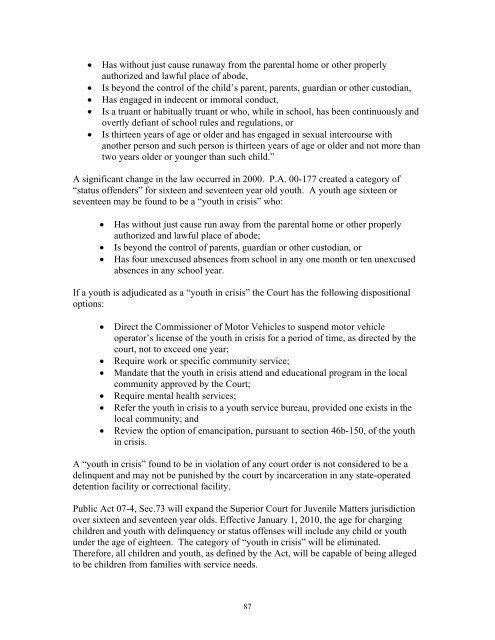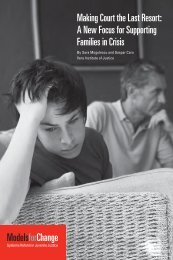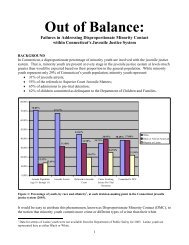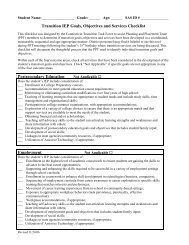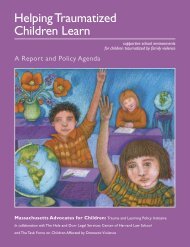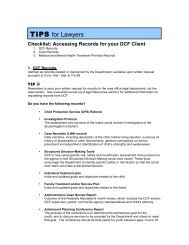FWSN-advisorybd-repo.. - The Connecticut Juvenile Justice Alliance
FWSN-advisorybd-repo.. - The Connecticut Juvenile Justice Alliance
FWSN-advisorybd-repo.. - The Connecticut Juvenile Justice Alliance
Create successful ePaper yourself
Turn your PDF publications into a flip-book with our unique Google optimized e-Paper software.
• Has without just cause runaway from the parental home or other properly<br />
authorized and lawful place of abode,<br />
• Is beyond the control of the child’s parent, parents, guardian or other custodian,<br />
• Has engaged in indecent or immoral conduct,<br />
• Is a truant or habitually truant or who, while in school, has been continuously and<br />
overtly defiant of school rules and regulations, or<br />
• Is thirteen years of age or older and has engaged in sexual intercourse with<br />
another person and such person is thirteen years of age or older and not more than<br />
two years older or younger than such child.”<br />
A significant change in the law occurred in 2000. P.A. 00-177 created a category of<br />
“status offenders” for sixteen and seventeen year old youth. A youth age sixteen or<br />
seventeen may be found to be a “youth in crisis” who:<br />
• Has without just cause run away from the parental home or other properly<br />
authorized and lawful place of abode;<br />
• Is beyond the control of parents, guardian or other custodian, or<br />
• Has four unexcused absences from school in any one month or ten unexcused<br />
absences in any school year.<br />
If a youth is adjudicated as a “youth in crisis” the Court has the following dispositional<br />
options:<br />
• Direct the Commissioner of Motor Vehicles to suspend motor vehicle<br />
operator’s license of the youth in crisis for a period of time, as directed by the<br />
court, not to exceed one year;<br />
• Require work or specific community service;<br />
• Mandate that the youth in crisis attend and educational program in the local<br />
community approved by the Court;<br />
• Require mental health services;<br />
• Refer the youth in crisis to a youth service bureau, provided one exists in the<br />
local community; and<br />
• Review the option of emancipation, pursuant to section 46b-150, of the youth<br />
in crisis.<br />
A “youth in crisis” found to be in violation of any court order is not considered to be a<br />
delinquent and may not be punished by the court by incarceration in any state-operated<br />
detention facility or correctional facility.<br />
Public Act 07-4, Sec.73 will expand the Superior Court for <strong>Juvenile</strong> Matters jurisdiction<br />
over sixteen and seventeen year olds. Effective January 1, 2010, the age for charging<br />
children and youth with delinquency or status offenses will include any child or youth<br />
under the age of eighteen. <strong>The</strong> category of “youth in crisis” will be eliminated.<br />
<strong>The</strong>refore, all children and youth, as defined by the Act, will be capable of being alleged<br />
to be children from families with service needs.<br />
87


